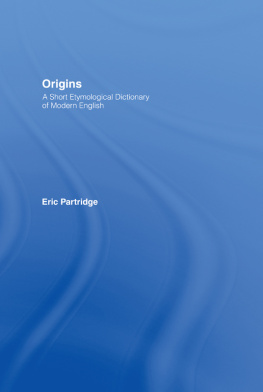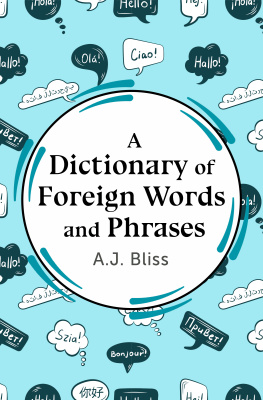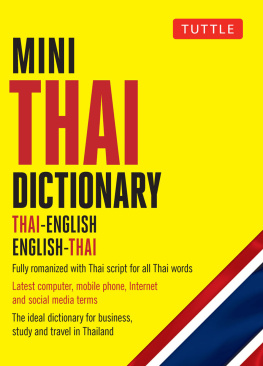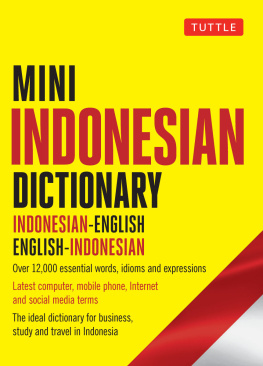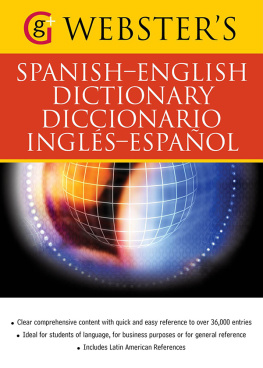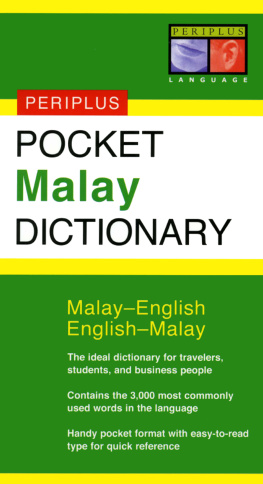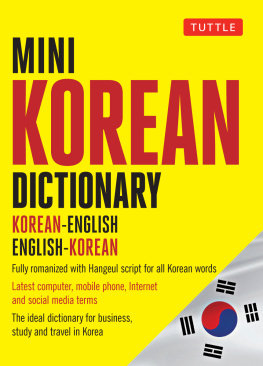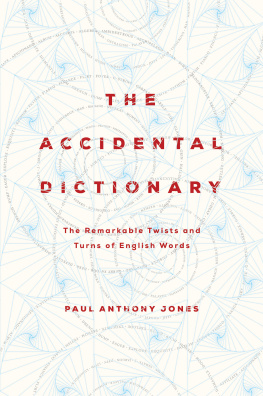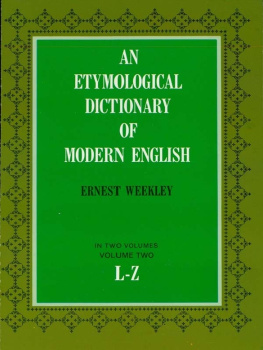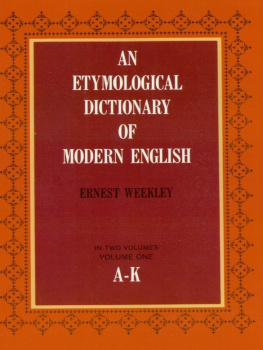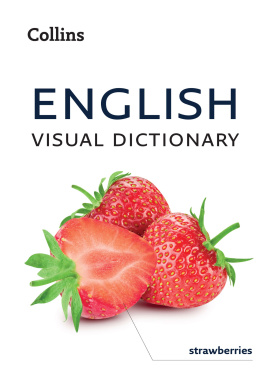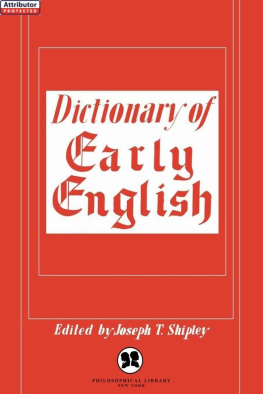Partridge - Origins
Here you can read online Partridge - Origins full text of the book (entire story) in english for free. Download pdf and epub, get meaning, cover and reviews about this ebook. year: 2006, publisher: Routledge, genre: Detective and thriller. Description of the work, (preface) as well as reviews are available. Best literature library LitArk.com created for fans of good reading and offers a wide selection of genres:
Romance novel
Science fiction
Adventure
Detective
Science
History
Home and family
Prose
Art
Politics
Computer
Non-fiction
Religion
Business
Children
Humor
Choose a favorite category and find really read worthwhile books. Enjoy immersion in the world of imagination, feel the emotions of the characters or learn something new for yourself, make an fascinating discovery.
- Book:Origins
- Author:
- Publisher:Routledge
- Genre:
- Year:2006
- Rating:4 / 5
- Favourites:Add to favourites
- Your mark:
- 80
- 1
- 2
- 3
- 4
- 5
Origins: summary, description and annotation
We offer to read an annotation, description, summary or preface (depends on what the author of the book "Origins" wrote himself). If you haven't found the necessary information about the book — write in the comments, we will try to find it.
Abstract: This work is an etymological dictionary of the 12,000 commonest words in modern English
Origins — read online for free the complete book (whole text) full work
Below is the text of the book, divided by pages. System saving the place of the last page read, allows you to conveniently read the book "Origins" online for free, without having to search again every time where you left off. Put a bookmark, and you can go to the page where you finished reading at any time.
Font size:
Interval:
Bookmark:
ORIGINS
BY THE SAME AUTHOR
A Dictionary of Slang and Unconventional English (Routledge; 6th edition (8th printing, in all)U.S.A.: Macmillan.)
A Dictionary of the Underworld, British and American (Routledge; 2nd edition, revised and enlarged, 2nd impressionU.S.A.: Macmillan.)
Slang Today and Yesterday: a history and a study (Routledge; 4th printing, U.S.A.: Macmillan.)
A Dictionary of Clichs (Routledge; 7th printingU.S.A.: Macmillan.)
Shakespeares Bawdy: A Study and a Glossary (Routledge; 3rd edition, 2nd impressionU.S.A.: Dutton.)
A Classical Dictionary of the Vulgar Tongue, by Captain Francis Grose: his 3rd edition (1796), edited, with a biographical essay and a running commentary, by Eric Partridge, 2nd edition (revised), 2nd impression. (RoutledgeU.S.A., Barnes & Noble.)
Usage and Abusage: A Guide to Good English (Hamish Hamilton; 6th edition, revised, enlarged, and brought up to date,U.S.A.: (1) British Book Centre; (2) school edition, Grosset & Dunlap.)
The Concise Usage and Abusage (Hamish Hamilton; 4th impressionU.S.A.: Philosophical Library.)
Name This Child: a dictionary of Christian or given names (Hamish Hamilton; 5th edition, 3rd impressionU.S.A.: British Book Centre.)
You Have a Point There: a guide to punctuation and its allies, with an American chapter by John W. Clark (Hamish Hamilton; 4th edition, 4th impressionU.S.A., British Book Centre.)
Whats the Meaning?: mostly for young people (Hamish Hamilton; 5 th impressionU.S.A.: British Book Centre.)
English: A Course for Human Beings (Macdonald; 5th edition: in one volume, and separately: Books I, II, IIIU.S.A.: Macdonald.)
TheShaggy DogStory: its origin, development and nature, with many seemly examples. Illustrated (Faber & Faber, 3rd impressionU.S.A.: Philosophical Library.)
Adventuring Among Words: a light-hearted essay on etymology. A volume in The Language Library. (Andr Deutsch, 2nd editionU.S.A.: Oxford University Press.)
Swifts Polite Conversation, edited with an introduction, notes and, for the dialogues themselves, a running commentary. (Andr Deutsch, 2nd impressionU.S.A.: Oxford University Press.)
The Gentle Art of Lexicography: A Memoir (Andr DeutschU.S.A.: Macmillan.)
A Dictionary of Catch Phrases (Routledge; U.S.A.: Stein and Day.)
ORIGINS
A SHORT
ETYMOLOGICAL DICTIONARY
OF MODERN ENGLISH
by
ERIC PARTRIDGE

First published in Great Britain in 1958
by Routledge
Second edition (with some corrections and additions) 1959
Third edition (with corrections and additions) 1961
Reprinted 1963
Fourth edition
(with numerous revisions and some substantial additions) 1966
Reprinted 1997, 2000; 2002
by Routledge, 2 Park Square,
Milton Park, Abingdon, Oxon, OX14 4RN
Transferred to Digital Printing 2006
Routledge is an imprint of the Taylor & Francis Group
Eric Partridge 1958, 1959, 1961, 1966
No part of this book may be reproduced in any form without permission from the publisher, except for the quotation of brief passages in criticism
ISBN 0 415 050 774
Publishers Note
The publisher has gone to great lengths to ensure the quality of this reprint but points out that some imperfections in the original may be apparent
piam in memoriam
CECIL ARTHUR FRANKLIN
a kindly and generous man
and a remarkable publisher
Philologists who chase
A panting syllable through time and space,
Start it at home, and hunt it in the dark,
To Gaul, to Greece, and into Noahs Ark.
Cowper, Retirement
Foreword
P ROFESSOR W. W. SKEATS large and small etymological dictionaries were last revised in 1910; Ernest Weekleys Concise Etymological Dictionary and Ferdinand Holthausens Etymologisches Wrterbuchder englischen Sprache, both excellent in their way, treat words so briefly and ignore ramifications so wholeheartedly that it was easy to plan a work entirely differenta remark that applies equally to Skeats Concise and, for relationships, almost as much to his larger book.
Exigencies of spacenot always a myth, nor always a mere excuse for lazinesspreclude a large vocabulary. The number of entries in Origins is comparatively small, even for an etymological dictionary, but the system I have devised has enabled me, with the aid of cross-references, not only to cover a very much wider field than might have seemed possible but also, and especially, to treat all important words much more comprehensively and thoroughly. I have concentrated upon civilization rather than upon science and technology; dialect and cant have been ignored; slang is represented only by a very few outstanding examples (e.g., phoney).
On the other hand, I have included a certain number of words not usually found in a small British etymological dictionary: words that, little known in Britain, form part of the common currency of Standard English as it is spoken and written in the United States of America, Canada, South Africa, Australia, New Zealand, India and Pakistan.
One class of words has deliberately been treated very meagrely: such exotics as do not fall into the classification AmericanismsAustralianismsetc. It does not much help the searcher to be told that llama has been adoptedthat is, accepted unchangedfrom Quechuan, or okapi from Bambulan (Mbuba); only a little more does it help him to learn that cassowary has been adapted from Malayan kasuari. For Amerindian, Australian aboriginal, Maori, Hindi and similar words, I have, wherever possible, avoided the baldness and inadequacy of such entries as kangaroo. Australian aboriginal word or pakeha. Maori for a white man.
In a book of this size a certain number of abbreviations is unavoidable. These abbreviations will not impede the easy flow of the consecutive English I hold to be indispensable in a book designed for the use of the general intelligent public as well as for that of the erudite. Nor, I hope, will scholars and students find readability a defect; after all, a work is not necessarily the more scholarly for being written in philological shorthand. Where, however, the conventions of lexicography make for clarity and simplicity, I have followed most of these conventions: and where either extremely brief etymologies or multiple cognates and complex histories occur, I have employed a brevity hardly less austere than compact. This combination of consecutiveness and terseness should prevent the treatment from becoming too deadly monotonous.
Warmest thanks are due, both to Professor John W. Clark, of the University of Minnesota, for help in choosing terms important in the United States of America, yet little known in Britain and the British Dominions, and to Professor D. Winton Thomas for occasional help in Semitic origins.
I shall be grateful for (private) notification, whether of printers and other errors or of entries that simply must be added: non-specialist words that, falling within the 10,000-or-so used by every intelligent person, have been inadvertently omitted from this dictionary. Also, a few important affixes and elements have probably slipped through the net.
ERIC PARTRIDGE
Postscript to the second edition. I have to thank Professors John W. Clark, Norman Davis, Simeon Potter, for some valuable notifications and corrections.
Postscript to the third edition. I owe much to Professors John W. Clark, Norman Davis, Simeon Potter and especially R. M. Wilson; and something to Mr R. W. Burchfield (by salutary indirection)Dr A. J. R. GreenProfessor Mario Pei Mr Stephen Potterand Mr T. Skaug of Oslo. All these gentlemen have been most generous: I can only hope that the third edition approaches their ideals a little more closely than did the first: it leaves me a shade less dissatisfied than I was.
Next pageFont size:
Interval:
Bookmark:
Similar books «Origins»
Look at similar books to Origins. We have selected literature similar in name and meaning in the hope of providing readers with more options to find new, interesting, not yet read works.
Discussion, reviews of the book Origins and just readers' own opinions. Leave your comments, write what you think about the work, its meaning or the main characters. Specify what exactly you liked and what you didn't like, and why you think so.

